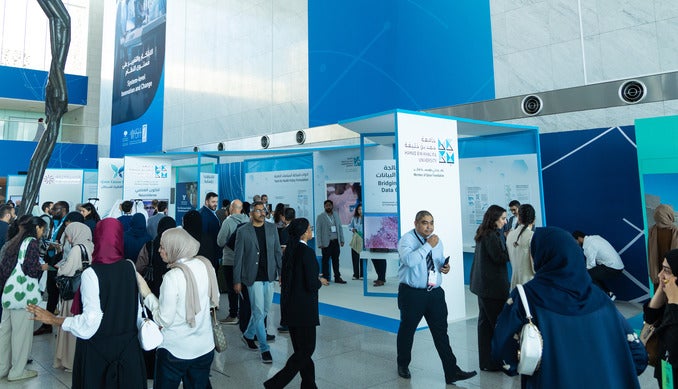Faculty and researchers highlighted university’s biomedical and healthcare expertise alongside cutting-edge technologies and innovations

Hamad Bin Khalifa University (HBKU) continued its long-standing collaboration with the World Innovation Summit for Health (WISH), Qatar Foundation’s global health initiative, serving as a Summit Partner and Steering Committee Member at this year’s edition held under the theme ‘Humanizing Health: Conflict, Equity, and Resilience,’ where it presented research and expertise in biomedicine and healthcare to an international audience.
Leveraging the combined expertise of its colleges and research institutes, HBKU contributed to global knowledge exchanges in health policy, air quality, bioethics, genomics research and other critical fields. The university played key roles in several panel discussions and roundtables including the invite-only session “Health Impacts of Air Quality in Urbanized Arid Regions - Towards Policy Options” held in the presence of esteemed government figures and policymakers. They also participated in “The Ethical Management of Artificial Intelligence (AI) in Healthcare,” which centered on how ethical considerations must remain at the forefront of research and policy at a time when AI is widespread across the global healthcare sector.
Commenting on HBKU’s strategic partnership with WISH, Dr. Ahmad M. Hasnah, President, HBKU, said: “Our strategic partnership centers on crafting policy recommendations that address critical health issues within local and global contexts. WISH 2024 highlighted the importance of resilient healthcare systems and protection of workers operating in conflict zones. HBKU has directed its institutional capacities to advance these goals through its multidisciplinary academic offerings and research output. Together with WISH, we have consistently driven collaboration and innovation in vital areas, including precision medicine and bioethics, across multiple editions of the summit.”
University-based innovators also presented projects that help researchers and practitioners bridge the data gap, alongside toolsto support health policy formulation, and various technologies that benefit humanity’s well-being. Created within HBKU’s incubation and development infrastructure, these innovations support diagnostic capabilities and the design of new treatments in the fields of autism, cancer, diabetes, genomics, mental health, and neurodegenerative diseases, utilizing artificial intelligence and other cutting-edge solutions.





